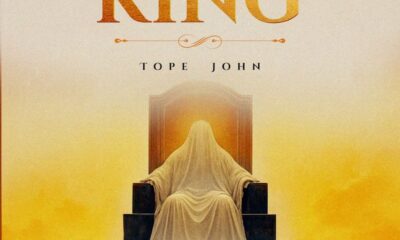PERSONALITY FOCUS
President Goodluck Jonathan has a penchant for visiting churches, in what many think could be strategic to his yet-to-be declared re-election bid. But playing religious politics is equally counterproductive, especially at a time and clime like this, writes. Ojo M. Maduekwe
It is that time of the year when politicians eyeing political offices throng churches and other spiritual centres for power and approval. Virtually all the politicians in Nigeria are known to use the pulpit to canvass for votes; a mixture of politics and religion has sometimes led to worshipper’s death. Remember the last Anambra gubernatorial election and the death caused by Governor Peter Obi’s visit to the Holy Ghost Adoration Ministry in the state.
Like other politicians before him, President Goodluck Jonathan, known to hobnob with churches and pastors, is at it again. Recently, after visits to traditional rulers in the North and South-west, he worshipped with the General Overseer, the Redeemed Christian Church of God (RCCG), Pastor E. A. Adeboye, at one of the churches’ Lagos branch. Aside Pastor Adeboye, others in attendance at the church service in Ikoyi, Lagos were Pastor Adeboye’s wife, Pastor Folu, the Resident Pastor and former Attorney-General of Lagos State, Pastor Yemi Osibajo (SAN), First Lady of Lagos State, Mrs Abimbola Fashola, the Deputy Governor of the state, Mrs Adejoke Adefulire and the Minister of State for FCT and Supervising Minister of Police Affairs, Ms Olajumoke Akinjide.
At the church service, President Jonathan said the country had experienced its share of global terror but remained united because of the prayers of churches and other religious groups in the country.
“I want to thank all of you for your prayers for this country. I thank Christians and other religious groups who prayed for this country, especially at the period the whole world is facing a lot of challenges. “In Nigeria too, we have been having our own unfair share of these negative news brought about by Boko Haram, but we believe that God knows it all. Without your prayers, probably it would have been worse than this… God will continue to hear our prayers so that our country will get out of these challenges and other crimes,” said the president.
In reaching out to members of the RCCG, who have been fasting and praying since January, the president said, “for the Redeemed family, we have to sincerely thank you because you declared 100 days of fasting which is not an easy task. “Even to keep faith with the orthodox 40 days fasting during the lent period which I also participate is not easy. You fasted not because of your personal interests, but for the country. I have to thank the General Overseer and all of you who have been fasting. May God answer our prayers.”
Pastor Adeboye, while citing some biblical references as reasons the church and nation should always wait upon God, said the Church would continue to seek the face of God for the country and its leadership. “I can assure you that we are praying and we will continue to pray because we have no other place to go to and God has a reason for that.” And so it seems that the religious altar has been appeased by the president and the coast clear for him to declare his intension to seek a re-election. That was not the only Church he’s visited in the last few days. He had visited a few.
Without mistaking the president’s comment for what it rightly is – political patronage of church goers – experts warned different religious adherents not to be deceived into believing that their deluge of prayers has stopped the Boko Haram sect from persistently raiding village communities, massacring an entire village, kidnapping and raping young women. The president speech was therefore seen as nothing more than campaigning for their votes ahead of 2015.
This is not the first time the president would play the religious card in canvassing for votes. In 2010, before the 2011 presidential election, he was a visitor to the Redemption Camp of the RCCG. Two years after that presidential electioneering, he again visited the camp to give thanks to God and asked for prayers to enable him rule the country.
“In 2010, I came to that year’s edition of the Congress where Pastor Adeboye and the congregation prayed for me. He prayed for the country and you all prayed for us and at the end of the day, the 2011 elections were successful. I have to sincerely thank you for that. “I would have been here for last year’s programme but because of state duties, I was unable, so I asked one of my ministers to represent me. I had to be here this year no matter what. It will not be fair on my part because, when I was campaigning, I came to you, you prayed for me, you worked for me and I succeeded and immediately after the election, I began to backslide. I feel it is not right.”
At the time, Pastor Adeboye led the mammoth crowd at the 15th Holy Ghost Congress of the church to pray to God to give the president wisdom, knowledge and courage to lead the nation aright. “God should direct him so that the glory of Nigeria will be restored in his time,” prayed Pastor Adeboye.
To an uproar of amen, the General Overseer continued: “God, please give him the divine enablement, courage; Lord lead him (president) aright during his tenure, let the glory of Nigeria be restored. Even before we enter the year, let the tide turn around for good for Nigeria. God let him succeed maximally and let his tomorrow be bright.”
Another instance of the president’s hobnobbing with religious organisations, bringing to question the secular nature of his office was last years’ pilgrimage visit to Jerusalem. Nineteen governors, as well as some serving ministers, and the President of the Christian Association of Nigeria (CAN), Pastor Ayo Oritsejafor, accompanied the President on the pilgrimage to Israel on his spiritual journey of discovery, where hands were laid on him in prayers.
President Jonathan’s speech of Nigeria experiencing relative peace as a result of prayers comes on the hill of recent attacks by the terrorist group, Boko Haram on villages in the North-east states under emergency rule that have raised widespread condemnation by locals and the international community.
The president believes that “Christians and other religious groups who prayed for this country,” are the reason for the “relative” peace that Nigeria enjoys. Not a few would ask: where is the peace? Is it in the North-east where the federal government keeps claiming to be winning the war on terror and yet, the Boko Haram members continue on their rampaging massacre? Contrary to the president’s take, the Governor of Borno State, Kashim Shettima, who should know better, believed that the country was in a state of war. Nigeria, according to Shettima, was fighting a terror war where “Boko Haram are better armed and are better motivated than our own troops,” and so, “Giving the present state of affairs, it is absolutely impossible for us to defeat Boko Haram.”
For the president, this is another campaign subject for another time, religious group and region. Already, one of his many aides, Dr. Doyin Okupe, has disputed Shettima’s war claims saying, “Nigeria is already winning the war against terror and the activities of the insurgents will be terminated within the shortest possible time.” Nigerians have heard this far too long to be taken serious.
The shuttling from one church to another by the president, who already is working hard at changing the perception of his presidency and party, is seen by observers as a miscalculation. Again, the opposition has something to play with. Those opposed to the president’s second ambition accuse him of being the master at playing the ethnic and religious cards.
Zainab Suleiman Okino, writing about the president’s action on a popular blog, said: “In the days ahead, the president, going by his antecedents, will visit more religious leaders and traditional rulers. To say the least, the president is missing the point. When he told his ‘no shoes story’ in 2011, he was obviously not referring to this category of people.
“Ordinary Nigerians thought that was his way of identifying with them. However, the president has since turned out to be a big let-down and has since abandoned his primary constituency where the voting power lies to hobnob with the VIPs.”
In the final analysis, the president, many reckon should learn to separate the pulpit from politics even though he seems to believe in the voting strength of the Church.
The fragility of the polity exacerbated by heightened religious and ethnic tension is antithetical to the president’s religious cards. Church or not, issues of performance with evident indices are what would define the next elections.
Thus, rather than waste too much time on church visits, the president can concentrate on the time left for him and create some game changing impressions. Even the bible is clear about this when it states that “Faith without work is dead.” Therefore, let the president return to work for which he was elected while the many intercessions by the churches may continue from far and near.
Posted from Naija Gospel

PERSONALITY FOCUS
President Goodluck Jonathan has a penchant for visiting churches, in what many think could be strategic to his yet-to-be declared re-election bid. But playing religious politics is equally counterproductive, especially at a time and clime like this, writes. Ojo M. Maduekwe
It is that time of the year when politicians eyeing political offices throng churches and other spiritual centres for power and approval. Virtually all the politicians in Nigeria are known to use the pulpit to canvass for votes; a mixture of politics and religion has sometimes led to worshipper’s death. Remember the last Anambra gubernatorial election and the death caused by Governor Peter Obi’s visit to the Holy Ghost Adoration Ministry in the state.
Like other politicians before him, President Goodluck Jonathan, known to hobnob with churches and pastors, is at it again. Recently, after visits to traditional rulers in the North and South-west, he worshipped with the General Overseer, the Redeemed Christian Church of God (RCCG), Pastor E. A. Adeboye, at one of the churches’ Lagos branch. Aside Pastor Adeboye, others in attendance at the church service in Ikoyi, Lagos were Pastor Adeboye’s wife, Pastor Folu, the Resident Pastor and former Attorney-General of Lagos State, Pastor Yemi Osibajo (SAN), First Lady of Lagos State, Mrs Abimbola Fashola, the Deputy Governor of the state, Mrs Adejoke Adefulire and the Minister of State for FCT and Supervising Minister of Police Affairs, Ms Olajumoke Akinjide.
At the church service, President Jonathan said the country had experienced its share of global terror but remained united because of the prayers of churches and other religious groups in the country.
“I want to thank all of you for your prayers for this country. I thank Christians and other religious groups who prayed for this country, especially at the period the whole world is facing a lot of challenges. “In Nigeria too, we have been having our own unfair share of these negative news brought about by Boko Haram, but we believe that God knows it all. Without your prayers, probably it would have been worse than this… God will continue to hear our prayers so that our country will get out of these challenges and other crimes,” said the president.
In reaching out to members of the RCCG, who have been fasting and praying since January, the president said, “for the Redeemed family, we have to sincerely thank you because you declared 100 days of fasting which is not an easy task. “Even to keep faith with the orthodox 40 days fasting during the lent period which I also participate is not easy. You fasted not because of your personal interests, but for the country. I have to thank the General Overseer and all of you who have been fasting. May God answer our prayers.”
Pastor Adeboye, while citing some biblical references as reasons the church and nation should always wait upon God, said the Church would continue to seek the face of God for the country and its leadership. “I can assure you that we are praying and we will continue to pray because we have no other place to go to and God has a reason for that.” And so it seems that the religious altar has been appeased by the president and the coast clear for him to declare his intension to seek a re-election. That was not the only Church he’s visited in the last few days. He had visited a few.
Without mistaking the president’s comment for what it rightly is – political patronage of church goers – experts warned different religious adherents not to be deceived into believing that their deluge of prayers has stopped the Boko Haram sect from persistently raiding village communities, massacring an entire village, kidnapping and raping young women. The president speech was therefore seen as nothing more than campaigning for their votes ahead of 2015.
This is not the first time the president would play the religious card in canvassing for votes. In 2010, before the 2011 presidential election, he was a visitor to the Redemption Camp of the RCCG. Two years after that presidential electioneering, he again visited the camp to give thanks to God and asked for prayers to enable him rule the country.
“In 2010, I came to that year’s edition of the Congress where Pastor Adeboye and the congregation prayed for me. He prayed for the country and you all prayed for us and at the end of the day, the 2011 elections were successful. I have to sincerely thank you for that. “I would have been here for last year’s programme but because of state duties, I was unable, so I asked one of my ministers to represent me. I had to be here this year no matter what. It will not be fair on my part because, when I was campaigning, I came to you, you prayed for me, you worked for me and I succeeded and immediately after the election, I began to backslide. I feel it is not right.”
At the time, Pastor Adeboye led the mammoth crowd at the 15th Holy Ghost Congress of the church to pray to God to give the president wisdom, knowledge and courage to lead the nation aright. “God should direct him so that the glory of Nigeria will be restored in his time,” prayed Pastor Adeboye.
To an uproar of amen, the General Overseer continued: “God, please give him the divine enablement, courage; Lord lead him (president) aright during his tenure, let the glory of Nigeria be restored. Even before we enter the year, let the tide turn around for good for Nigeria. God let him succeed maximally and let his tomorrow be bright.”
Another instance of the president’s hobnobbing with religious organisations, bringing to question the secular nature of his office was last years’ pilgrimage visit to Jerusalem. Nineteen governors, as well as some serving ministers, and the President of the Christian Association of Nigeria (CAN), Pastor Ayo Oritsejafor, accompanied the President on the pilgrimage to Israel on his spiritual journey of discovery, where hands were laid on him in prayers.
President Jonathan’s speech of Nigeria experiencing relative peace as a result of prayers comes on the hill of recent attacks by the terrorist group, Boko Haram on villages in the North-east states under emergency rule that have raised widespread condemnation by locals and the international community.
The president believes that “Christians and other religious groups who prayed for this country,” are the reason for the “relative” peace that Nigeria enjoys. Not a few would ask: where is the peace? Is it in the North-east where the federal government keeps claiming to be winning the war on terror and yet, the Boko Haram members continue on their rampaging massacre? Contrary to the president’s take, the Governor of Borno State, Kashim Shettima, who should know better, believed that the country was in a state of war. Nigeria, according to Shettima, was fighting a terror war where “Boko Haram are better armed and are better motivated than our own troops,” and so, “Giving the present state of affairs, it is absolutely impossible for us to defeat Boko Haram.”
For the president, this is another campaign subject for another time, religious group and region. Already, one of his many aides, Dr. Doyin Okupe, has disputed Shettima’s war claims saying, “Nigeria is already winning the war against terror and the activities of the insurgents will be terminated within the shortest possible time.” Nigerians have heard this far too long to be taken serious.
The shuttling from one church to another by the president, who already is working hard at changing the perception of his presidency and party, is seen by observers as a miscalculation. Again, the opposition has something to play with. Those opposed to the president’s second ambition accuse him of being the master at playing the ethnic and religious cards.
Zainab Suleiman Okino, writing about the president’s action on a popular blog, said: “In the days ahead, the president, going by his antecedents, will visit more religious leaders and traditional rulers. To say the least, the president is missing the point. When he told his ‘no shoes story’ in 2011, he was obviously not referring to this category of people.
“Ordinary Nigerians thought that was his way of identifying with them. However, the president has since turned out to be a big let-down and has since abandoned his primary constituency where the voting power lies to hobnob with the VIPs.”
In the final analysis, the president, many reckon should learn to separate the pulpit from politics even though he seems to believe in the voting strength of the Church.
The fragility of the polity exacerbated by heightened religious and ethnic tension is antithetical to the president’s religious cards. Church or not, issues of performance with evident indices are what would define the next elections.
Thus, rather than waste too much time on church visits, the president can concentrate on the time left for him and create some game changing impressions. Even the bible is clear about this when it states that “Faith without work is dead.” Therefore, let the president return to work for which he was elected while the many intercessions by the churches may continue from far and near.
Posted from Naija Gospel














Leave a Reply